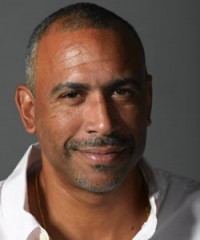
The following interview is shared with you by both Pedro Noguera and Isaac Graves. To learn about this interview series and reproduction, citation, and copyright information, please click here. To find out more about Pedro Noguera and his work, click here.
Pedro Noguera
 Isaac Graves: What does community mean to you?
Isaac Graves: What does community mean to you?
Pedro Noguera: It means many things. Community could be a physical community as in the neighborhood. It could be a virtual community as a collection of people with shared or similar interests. Or it could be kind of more a fictional community that is more symbolic with people who share some characteristic but don’t necessarily know each other like the gay community or the black community.
IG: How does community play out in your life?
PN: I think on all three of those levels.
IG: What do you find most meaningful about community?
PN: Depends on which one. In terms of my actual neighborhood community I find it helpful to know my neighbors because we help each other with something as simple as shoveling each other’s snow to dealing with neighborhood problems together. From these more virtual communities that I’m a part of I find it helpful to get information to work on common issues together. That sort of thing.
IG: What's missing in community?
PN: I think what I find I want most is the ability to act in concert more on issues of mutual interest to exert greater influence. I think that’s more difficult but maybe because of time – my own time – it takes a lot of time to do that kind of work.
IG: What is an ideal community to you?
PN: I guess it would have the combination of the virtual contact and then real actual physical contact – for there to be both.
IG: What does a democratic education mean to you?
PN: Well to me it means that you are – that it’s democratic in the sense that it is inclusive because it is acceptable to a wide variety of people. It’s democratic because it recognizes that students are not passive beings but have to be engaged as critical thinkers. It’s democratic because parents need to be treated as also active participants in the educational process and not merely as consumers of it. And it’s democratic because it has a sense of public accountability and a commitment to addressing broader public and social goals.
IG: How does education play out in your life?
PN: Well you know that’s my work so it plays out on many levels. Professionally it plays out in terms of the work I do and research and writing and then also direct support work with schools. I am also a parent so it plays out engaged through my kids with their schools. So it plays out on many different levels.
IG: What do you find most meaningful about education?
PN: I find most valuable visiting schools and working with educators who are making a difference, who are doing extraordinary things despite the obstacles they face still find ways to make a difference for children.
IG: What is missing in education?
PN: I want to see school play more of a role in promoting social change. I mean that in a broad sense. In communities that are – like I was asked to help in Detroit and New Orleans. These are cities with high rates of poverty and unemployment. They need to play a role in helping people to figure out how to address their economic needs and in communities that dealing with issues related to violence they to help people figure out how better to cope with violence and reduce the instance of violence. So I think, what I really look for is schools that can be function as assets to communities and really function more as institutions that can help to heal and alleviate the most pressing problems that communities face.
IG: What is an ideal education to you?
PN: An ideal education is simply put is one that prepares you for the world you live in, to be a critical participant in that world. To be able to take care of yourself and survive – not to survive, but to thrive hopefully. An education that contributes to your sense of happiness and fulfillment.
IG: What do you think people should know about the relationship between community and education?
PN: Well I think the main thing to recognize is that learning just doesn’t occur in schools. That kids are often learning a lot outside of school at home and in the communities so the lines between schools and communities need to be permeable so that it is easy for educators to learn about and understand what is happening in the communities where their children live but also easy for the schools to draw support from those communities to address the needs of children. When that kind of more collaborative relationship exists I believe that schools and communities benefit from the partnership.

















